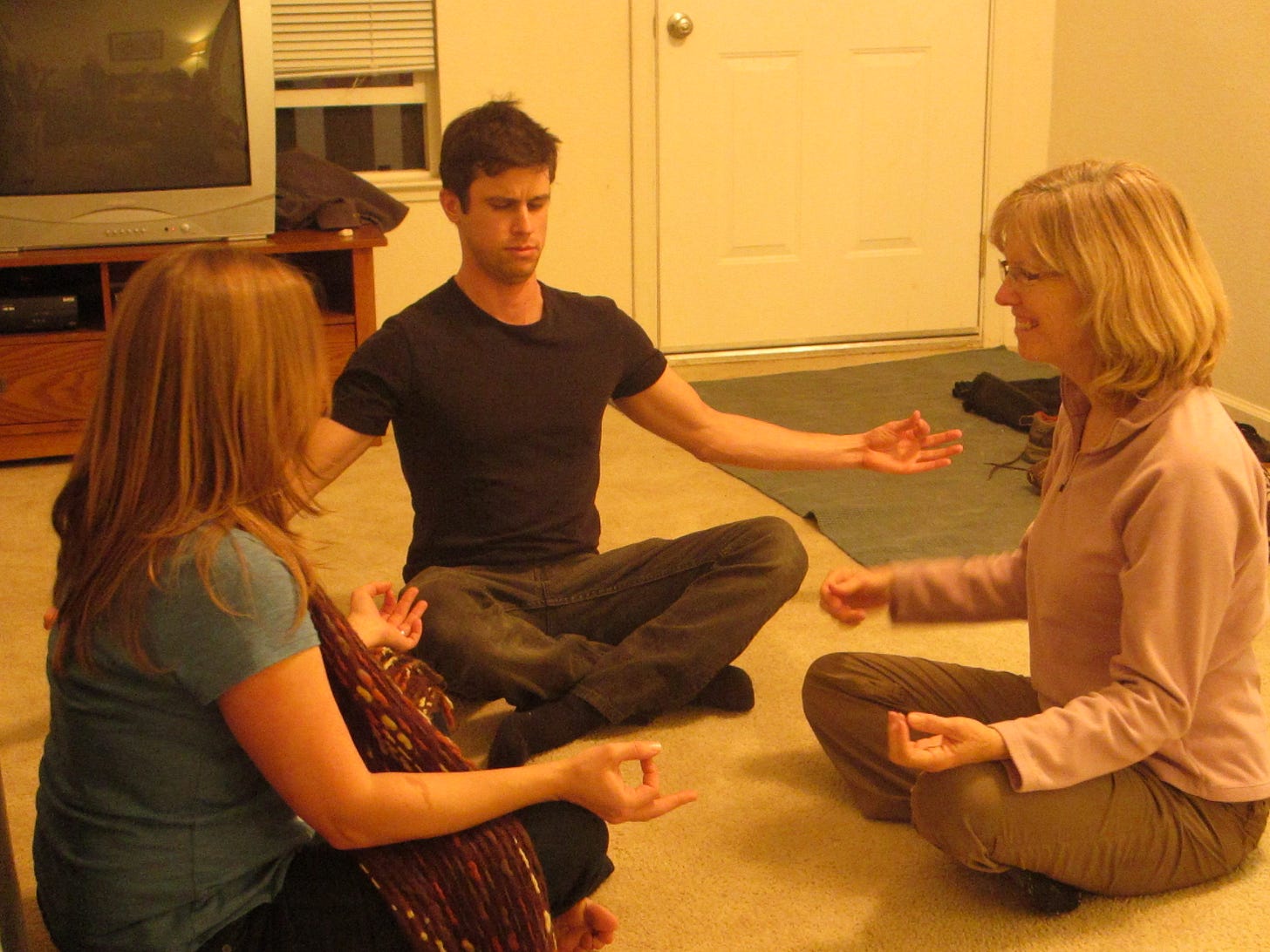Holidays can be difficult. If you have expectations, a picture in your mind about how you want each day to go, they can be heartbreaking. If you view them as scenes in a sprawling play, documentary movie, or novel, they can be wondrous and epic.
Richard Ford’s trilogy of novels all took place over long weekends. The quintessential American ones: Memorial Day, Fourth of July, Labor Day. His Frank Bascombe character is a sportswriter and then realtor, but at heart, he’s a bemused ethnographer. Ethnography is the study of community, and it involves close observation, even immersive participation, and crucially no or low judgement. One of the tenets, is to act like an alien. This is the ideal way to approach the holidays.
I don’t get to spend my whole life closely studying the world. I wish. The discipline needed to not get pulled into distractions and write or rehearse most mornings necessitates a certain tunnel vision. Add in the need to get exercise, do supplemental teaching work and other side hustles, ship kids to and from school, engage with said kids after school so there’s some shred of hope for humanity and empathy left in a world increasingly bent on/by narcissism, and no, there’s not a lot of time. I execute trips to grocery stores with Navy Seal efficiency. Sure, I’ll lock in with a vibey clerk when ringing me up, but I’m mostly running down specialty items like an action movie bounty hunter.
Holidays, we all get to slow down. We can marvel at America’s love of commerce. At a Whole Foods in Nashville one Thanksgiving, my friend Pratim and I spent a solid ten minutes looking at all the varieties of oranges, and watching how and why people selected the ones they selected. At a Safeway looking over avocados in Idaho on Fourth of July weekend last summer, I bonded with the migrant workers from Michoacan (Idaho is so deeply white, that a white boy speaking Spanish stunned them and we shared stories of how we both got to this supermarket in rural Idaho.)
But how do you study your family? It’s hardest to do close observation and low judgement with the people you’ve known your whole life. Triggers and annoyances may abound. If you think of yourself as someone studying them, though, those annoyances can turn into fascinations, even comic moments. Your Dad comes into the room humming a Beatles tune, looks at the Arts section of the newspaper and dryly says, “The Arts. Do they even exist anymore?” Yes, perhaps your nine-year old son could have learned a different chorus than Eminem’s 2000 hit “The Real Slim Shady” to repeat over and over again, but at least he’s engaged.
Taking non-posed photos and videos are great. But I’m a huge fan of audio recordings. An audio recording of your family on Christmas morning or dinner on Christmas/Hannukah/Kwanza in twenty years it will be the most evocative document you have of this time.

And then there’s in-laws, which allow you to study the tribe you married into. I spent a holiday weekend with my in-laws in a mobile home in Pismo Beach my mother-in-law rented for us 12 years ago. We have two priests in that wing of the family, and they’d both been loaded up with Christmas sweet breads by their congregation. We ate sweet bread and played group charades, and even 90 year old Grandad, who farmed in the desert heat of the Imperial Valley for decades, became a grinning Clint Eastwood in the charade Fistful of Dollars.
We’d both rise at dawn when no one else was up. I’d pick up the local newspaper and we’d read it silently together. Every ten minutes I’d read a headline that might pertain to his life and ask a question. He’d tell me about the difficulty of getting one price for his produce on the phone and another one once he’d trucked it into town.
In the evening, his son, my wife’s uncle, had us all jump into the back of his pickup and took us for a ride over the dunes. He’s a brilliant mechanic and also a well-known daredevil who fell out of a crop duster plane once and broke his back. So when he took his pickup up and down dunes, yes, I feared I was gonna bounce out many times. Then everyone hopped out of the truck and started rolling at high speeds down the sandunes. As an ethnographer, I felt witness to a California desert dune play connected to their identity and family lore.
The abundance of rituals and religious ceremonies in winter around the solstice is not a quirk of history. For most of our existence, there wasn’t copious light after dark. So in the dark nights, we lit candles, sang songs, created games. That can happen with family, it can also happen with strangers. I spent Christmas in Madrid, Spain in 2000. Somehow my crew for the evening was a childhood friend from home, a Brazilian woman and her Spanish friend, and a man from Senegal. We spent the evening in plazas mostly, sometimes going into bars. When we said goodbye, rather than a photo, I asked that we all stand in a small circle and take a mental photo of each other together. We closed our eyes, then opened them and focused our collective attention on one person at a time for three seconds. Our eyes became the shutter, and our brains the camera. I can still remember the smile of the man from Senegal, and the laughter of the Brazilian woman as we collectively took her mental photo.
The internet is built to be received quickly, with high judgement and low close study. The way we talk, interact, judge, and feel lonely on the internet has now crossed over into how we live in real life. It’s harder than ever to think like an ethnographer, and yet its gifts are abundant. Leading with curiosity, being both an insider and an outsider at the same time, and being open to pursuing whatever is the most interesting thing you find. And at the holidays, you can even do it with a drink in your hand. Here’s to a week of holiday connection and curiosity. It’s way less pressure and more fun than needing to be cheery.




